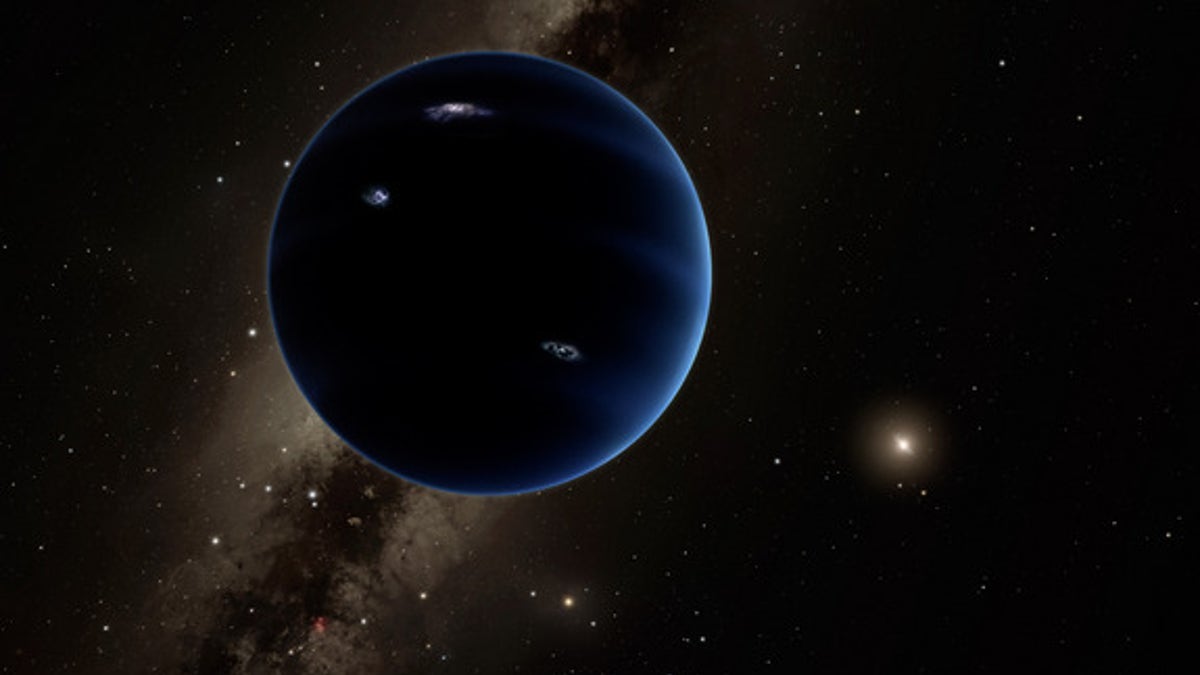
Artist’s illustration of “Planet Nine,” a hypothesized world about 10 times more massive than Earth that may orbit far beyond Pluto. (Caltech/R. Hurt (IPAC))
We might not actually know how many planets are in our Solar System — and no, this isn’t a trick regarding Pluto’s status. For years, scientists have wondered if there might be a larger, planet-sized body lurking in or around the thick layer of debris called the Kuiper Belt, and now NASA is saying the evidence is hard to ignore.
The would-be planet, which would likely be a frigid place thanks to its position on the very outer edge of the system, hasn’t been directly spotted, but measurements of other known objects in the Kuiper Belt heavily suggest something is there. The only thing left to do is actually spot it, or verify that it doesn’t actually exist at all.
“There are now five different lines of observational evidence pointing to the existence of Planet Nine,” Konstantin Batygin, a Caltech planetary astrophysicist, explains. “If you were to remove this explanation and imagine Planet Nine does not exist, then you generate more problems than you solve. All of a sudden, you have five different puzzles, and you must come up with five different theories to explain them.”
Simply put, the observations that have already been made all point to the existence of a planet that we don’t yet know about. The mythical Planet Nine is pulling on other objects in the Kuiper Belt, and causing them to behave in ways that match with the theory that an unknown planet is doing the pulling.
Now, scientists are doing their best to actually spot the planet, but it won’t be easy. Tucked away on the edge of our Solar System, it won’t exactly be the brightest object in the sky, and the only hope of capturing a glimpse of it will be to find its faint glow. If a new world is indeed discovered, it will undoubtedly be a huge deal for the scientific community, not to mention rewriting textbooks and changing the way we view our own cosmic back yard.